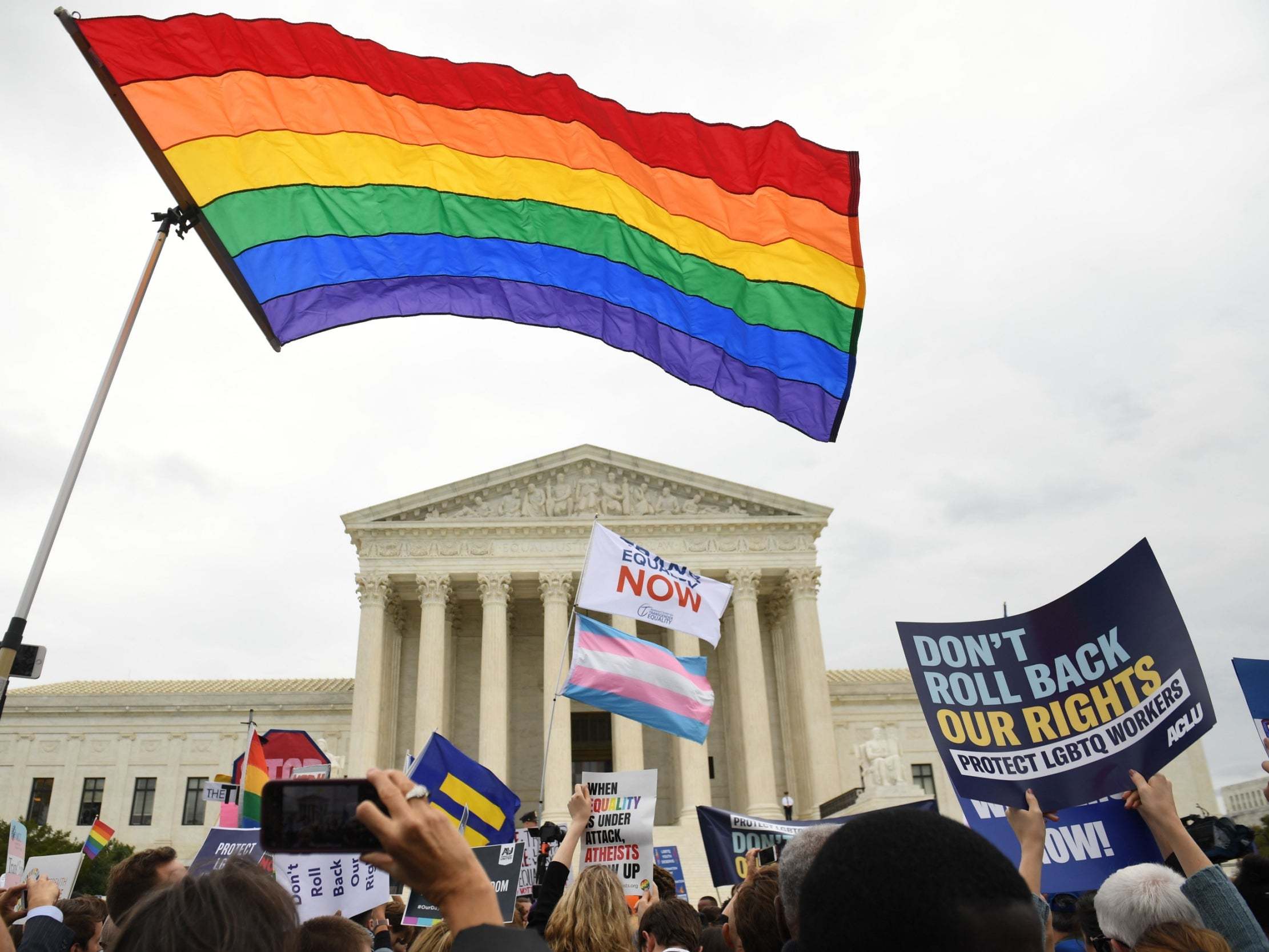LGBT+ Americans disproportionately hit by pandemic’s economic effects
Gay and trans people are 30 per cent more likely to have lost their jobs

Economic fallout from the coronavirus pandemic is having a harsher impact on LGBT+ Americans than on the general population, said a survey released on Friday showing gay and trans people are 30 per cent more likely to have lost their jobs since May.
LGBT+ employees are 20 per cent more likely to have had hours reduced than their straight colleagues, a figure that rises to 44 per cent among gay and trans people of colour, according to the survey by the Human Rights Campaign (HRC), a US advocacy group.
The research looked at the economic impact of the pandemic from the end of May, when many US states started easing lockdowns and initiating policies to reopen businesses.
“As some communities start to go back to work ... we’re seeing that LGBT+ people, especially LGBT+ people of colour and transgender people, are being left behind,” said HRC President Alphonso David in a statement.
“The data continues to reinforce what we already know – that the economic fallout from the Covid-19 pandemic is not over because the pandemic is not over, especially for communities who were already marginalised in this country.”
More than 6 million cases of coronavirus have been recorded in the United States, according to a Reuters tally, with at least 185,000 deaths.
The government’s most recent report on joblessness showed nearly 30 million Americans claiming some form of unemployment benefit in mid-August, with some 880,000 people filing for claims last week alone.
Rights advocates say gay and trans people are bearing the brunt – locked out of education and work opportunities due to discrimination, many were in a fragile state financially before the pandemic hit.
Even with many states starting to reopen, black and Latino LGBT+ people have been 70 per cent more likely than the general population to have lost their jobs, according to the HRC survey.
LGBT+ people were 50 per cent more likely to have taken a pay cut since lockdown measures eased, and LGBT+ people of colour were one and a half times more likely, it said.
Nevertheless, the survey found eight in 10 LGBT+ people favoured containing the virus rather than reopening the economy after lockdown measures eased, compared with less than 70 per cent among the general population.
The HRC survey was conducted with analytics consultancy firm PSB among 12,000 US adults between 16 April and 6 August.
Thomson Reuters Foundation
Join our commenting forum
Join thought-provoking conversations, follow other Independent readers and see their replies
Comments
Bookmark popover
Removed from bookmarks